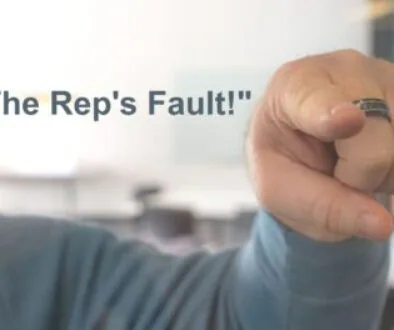Why your healthcare customers don’t sleep well at night…and how you can help.
One of the key things that savvy medical sales professionals are aware of is the perceived value of reducing risk for healthcare professionals.
Risk is a broad category. Typically we think of risk avoidance in healthcare as preventing harm to a patient or obtaining something better than a suboptimal result. But healthcare professionals feel like targets of a legal profession that views them as an unlimited source of income.
According to a study by Patients for Fair Compensation, $31 billion dollars in 2011 were paid out in malpractice claims, but only 20% of that went to the actual patient. Eighty percent (80%) went to lawyer’s fees and administrative defense costs. This means that the patient, in other words the party who was allegedly harmed; the person who suffered and might continue to suffer; the one whose life will be irretrievably affected by the malpractice event; this person received, on average, only 20% of the settlement or award! Small wonder that attorneys pursue malpractice cases for contingency fees!
Why don’t we have laws that ensure that the person who is harmed, in other words the person who the money is supposed to help…why don’t we have laws that ensure the majority of an award or settlement goes to them? Well, who makes the laws? Oh yeah…
Healthcare professionals have targets painted on their backs. Any suggestion of malpractice virtually assures a payday for attorneys representing the allegedly harmed patient who will walk away with less money than the attorneys after a settlement. That doesn’t seem fair to me and it forces healthcare professionals to practice defensive medicine instead of “good medicine.”
Why am I telling you all this when your job is to sell? Because I want you to know what keeps your healthcare customers up at night and why they are so averse to change that introduces a level of risk that could ultimately lead to getting sued.
Let your customers know that you understand their concerns about risk. If your product or service reduces their exposure to risk, make sure it’s included in your value proposition. Help your customers to achieve great patient outcomes while reducing risk.
Remember, when you always do what’s right for the patient and the provider while over-delivering on value, you’ll sell more, earn more, and garner your customer’s respect. Let your healthcare customers know that you’re on their side.


